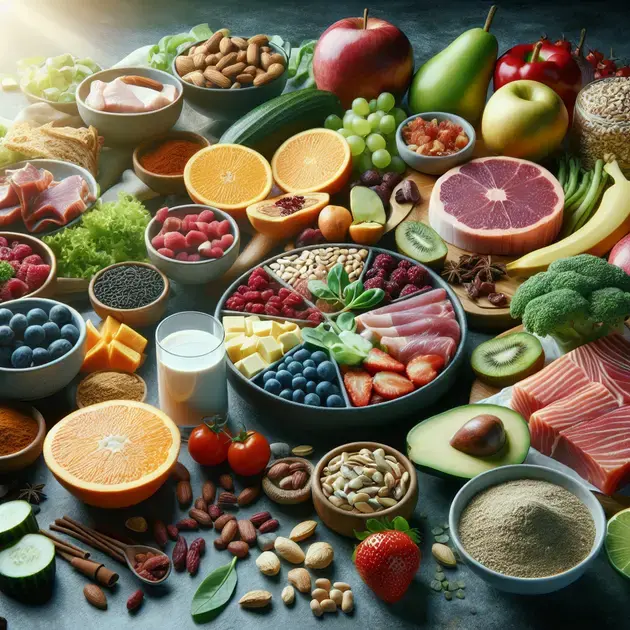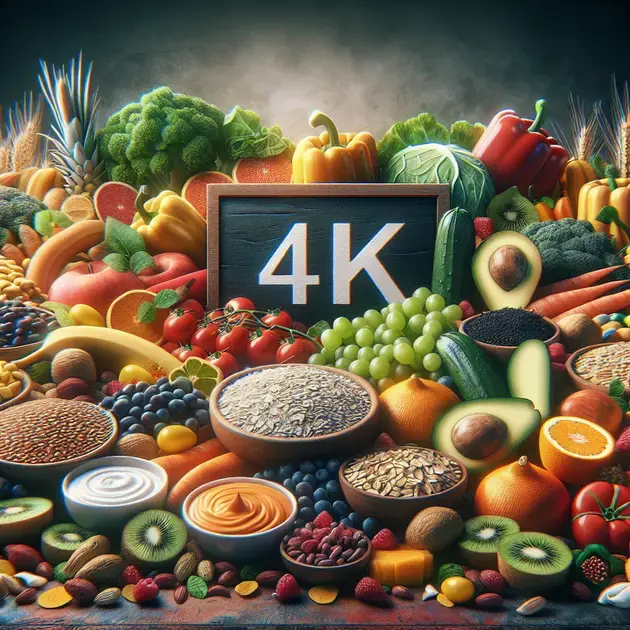Are you looking to shed some extra pounds and improve your overall health? Look no further than this comprehensive guide on Eating Right for Weight Loss. In today’s fast-paced world, finding the right balance between nutrition and weight management can be challenging, but with the proper guidance, achieving your goals is within reach.
Understanding the correlation between what you eat and your weight is crucial in your journey to a healthier lifestyle. The Ultimate Guide will provide you with the necessary tools and information to make informed decisions about your diet, helping you achieve sustainable weight loss and long-term success.

Eating Right for Weight Loss: The Science Behind It
Understanding Caloric Intake and Expenditure
One of the fundamental aspects of weight loss is understanding the balance between caloric intake and expenditure. To lose weight, you need to consume fewer calories than your body burns. Apps like MyFitnessPal can help you track your daily food intake and exercise, providing insights into your overall caloric balance.
Start by calculating your Basal Metabolic Rate (BMR) using online calculators like the one available on the National Institute of Health website. Once you have your BMR, you can adjust your calorie intake based on your weight loss goals, ensuring you are in a caloric deficit without compromising your nutritional needs.
By using apps like MyFitnessPal to monitor your food intake and exercise, you can make informed decisions about your diet and activity levels, optimizing your weight loss journey.
The Role of Macronutrients
Macronutrients, including carbohydrates, proteins, and fats, play a crucial role in weight loss and overall health. Understanding the balance of these nutrients in your diet is essential for achieving sustainable weight loss. Websites like ChooseMyPlate.gov offer guidance on portion sizes and food choices based on your individual needs.
Use apps like Carb Manager to track your macronutrient intake and ensure you are meeting recommended guidelines. Focus on incorporating lean proteins, whole grains, and healthy fats into your meals to support your weight loss goals while providing the necessary nutrients for your body’s functions.
By paying attention to your macronutrient intake and making adjustments based on reliable information from sources like ChooseMyPlate.gov and apps like Carb Manager, you can create a well-rounded diet plan for successful weight loss.
The Impact of Food Quality on Weight Loss
While calorie counting is important for weight loss, paying attention to the quality of the food you consume is equally crucial. Foods rich in nutrients and fiber not only support weight management but also promote overall health and well-being. Websites like Healthline provide articles and resources on the benefits of whole, unprocessed foods for weight loss.
Apps like Cronometer can help you track the micronutrients in your diet, ensuring you are meeting your daily requirements for vitamins and minerals. Focus on incorporating a variety of colorful fruits and vegetables, whole grains, and lean proteins into your meals to improve satiety and support weight loss efforts.
By prioritizing food quality and using tools like Cronometer to monitor your nutrient intake, you can enhance the effectiveness of your weight loss journey while enjoying a diverse and nutritious diet.

How to Incorporate Healthy Foods for Weight Loss
Eating healthy foods is essential for weight loss and overall well-being. Incorporating nutrient-rich foods into your diet can help you achieve your weight loss goals effectively. One way to start is by focusing on whole foods such as fruits, vegetables, lean proteins, and whole grains. These foods are packed with essential vitamins, minerals, and antioxidants that can support your weight loss journey.
To incorporate healthy foods into your diet, start by planning your meals ahead of time. This can help you make better food choices and avoid reaching for processed or unhealthy options. Make a grocery list with a variety of nutrient-dense foods and try new recipes to keep your meals exciting and enjoyable.
Another tip is to prioritize hydration by drinking plenty of water throughout the day. Staying hydrated can help control hunger and prevent overeating. Additionally, consider incorporating healthy snacks like nuts, seeds, or Greek yogurt to keep you satisfied between meals.
Remember to listen to your body and pay attention to how different foods make you feel. Everyone’s nutritional needs are unique, so it’s important to find a balance that works for you. By making small changes and being consistent with your healthy eating habits, you can effectively incorporate nutritious foods for weight loss.
Maximizing Nutrient Intake for Effective Weight Management
Maximizing your nutrient intake is key to effective weight management and overall health. One way to do this is by focusing on nutrient-dense foods that provide essential vitamins and minerals without excess calories. Include a variety of colorful fruits and vegetables in your meals to ensure you are getting a wide range of nutrients.
Incorporating lean proteins such as chicken, fish, tofu, or legumes can help support muscle growth and repair while keeping you feeling full and satisfied. Whole grains like quinoa, brown rice, and oats are excellent sources of fiber and can help regulate blood sugar levels.
When planning your meals, aim for a balance of macronutrients – protein, carbohydrates, and fats. This can help keep your energy levels stable and prevent unhealthy cravings. Consider consulting with a nutritionist or dietitian to ensure you are meeting your specific nutrient needs for effective weight management.
Additionally, consider adding superfoods like kale, spinach, berries, or nuts to your diet. These foods are packed with antioxidants and other beneficial compounds that can support your weight management goals. By maximizing your intake of nutrient-rich foods, you can optimize your health and achieve long-term weight management success.
The Connection Between Food Choices and Weight Loss Goals
The food choices you make can have a significant impact on your weight loss goals. Choosing nutrient-dense foods over processed or high-calorie options can help you sustain a healthy weight and improve your overall well-being. Start by understanding the nutritional value of different foods and how they can support your weight loss journey.
When creating meals, focus on incorporating a variety of food groups to ensure you are getting a balance of nutrients. Experiment with different flavors and ingredients to keep your meals interesting and enjoyable. Avoid excessive consumption of sugary or high-fat foods that can sabotage your weight loss efforts.
It’s also important to be mindful of portion sizes and listen to your body’s hunger cues. Eating slowly and savoring your meals can help prevent overeating and promote better digestion. Consider keeping a food journal to track your meals and identify any patterns or triggers that may be hindering your weight loss progress.
By making conscious and informed food choices, you can align your eating habits with your weight loss goals. Remember that small changes can lead to significant results over time, so focus on consistency and balance in your approach to food for successful weight loss.
**
Conclusion
**
Incorporating healthy foods for weight loss is not just about shedding pounds, but also about nurturing your body for overall well-being. By focusing on nutrient-rich whole foods such as fruits, vegetables, lean proteins, and whole grains, you provide your body with essential vitamins, minerals, and antioxidants that support your weight loss journey.
Planning your meals ahead, creating a diverse grocery list, and trying new recipes can make the process of incorporating healthy foods more enjoyable and sustainable. Prioritizing hydration, opting for healthy snacks, and paying attention to your body’s signals are crucial steps in maintaining a balanced diet that promotes weight loss.
Maximizing nutrient intake through colorful fruits, vegetables, lean proteins, and whole grains is key to effective weight management and overall health. Finding a balance of macronutrients and considering consulting with a nutritionist can help tailor your diet to meet your specific needs, ensuring long-term success in weight management.